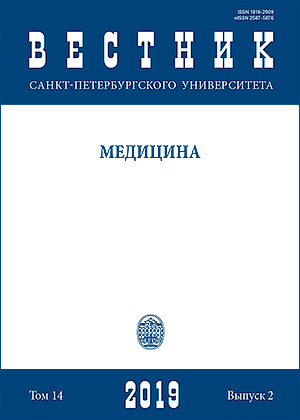Growth hormone treatment strategies in assisted reproduction for the poor responder patients
DOI:
https://doi.org/10.21638/spbu11.2019.205Abstract
The goal of the study was to estimate the efficacy of growth hormone (GH) co-treatment to the antagonist protocol in IVF/ ICSI cycles in poor responders. A prospective observational study involved 75 patients. All patients underwent standard antagonist protocol with or without GH co-treatment. GH additional was given a daily subcutaneous injection of 1.33 mg (equivalent to 4 IU) of GH from day 1 of ovarian stimulation until the day of human chorionic gonadotropin (hCG). Concentrations of GH, insulin-like growth factor I (IGF-I) and IGF binding protein-3 (IGFBP-3) in serum and follicular fluid were analyzed. The GH co-treatment significantly lowered effective dose of gonadotropins, duration of stimulation, IGFBP-3 level in serum and follicular fluid day of oocytes retrieval. The number of oocytes recovered, metaphase II stage (MII) oocytes, 2 pronucleus (2 pn) zygote, good-quality transferred embryos were significantly higher in the GH+ group. Only patients GH+ group became pregnant. Positive correlation was found between IGF-I level in follicular fluid, dynamics of IGFBP-3 level changes during stimulation protocol and number of good-quality transferred embryos in the GH+ group. GH administration in IVF/ICSI cycles for poor responders raises ovarian sensitivity to the gonadotropin exogenous influence, this way, increasing number of high-quality embryos and the probability of pregnancy.
Keywords:
growth hormone; poor ovarian response; in vitro fertilization (IVF); assisted reproductive technologies (ART)
Downloads
References
References
Downloads
Published
How to Cite
Issue
Section
License
Articles of "Vestnik of Saint Petersburg University. Medicine" are open access distributed under the terms of the License Agreement with Saint Petersburg State University, which permits to the authors unrestricted distribution and self-archiving free of charge.




